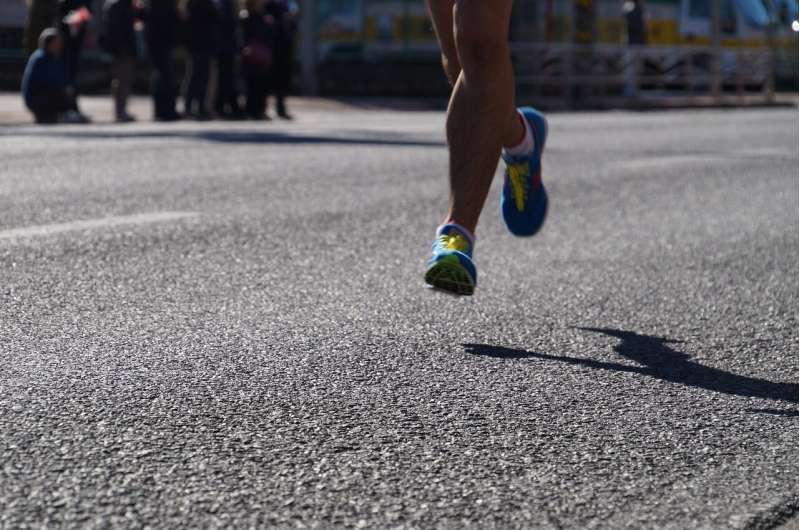Nutrition tips for running virtual races

DEAR MAYO CLINIC: I am a runner who has previously participated in 5K and 10K races, as well as half-marathons and full marathons. I would rely on water and nutrition stations at the events to help fuel my performance. Now due to COVID-19, these events are going virtual. I signed up for my first virtual run. What are some tips so I can best hydrate and fuel during my race?
ANSWER: No matter what distance you run or walk, it is important to keep your body hydrated and ensure you have energy to complete your activities. Although COVID-19 has resulted in many athletic events being canceled, more events are being offered virtually. While virtual races provide an opportunity to stay motivated with training, they require different planning and preparation, and you must consider your nutrition and hydration.
Nutrition and hydration aid stations are carefully situated at regular intervals around the course at physical races. With COVID-19 making these races virtual, it is now up to you to set this up, and it’s a step that should not be missed.
Whether a virtual race or in person, it’s critical not to skip fueling while racing. Oftentimes, I have novice athletes say, “I am not a professional or elite runner, so I do not need nutrition during my race.” This is the exact reason you need nutrition.
Compared to the professionals, you will run longer and use much more fuel. You want to make sure your body has enough energy to get you to the finish line.
The recommendation is to take in 30-60 grams of carbohydrates every hour if you run for longer than one hour. You should begin carbohydrate intake shortly after the start of your race and continue to consume at 15- to 20-minute intervals for the remainder of your run.
Hydration is also an important component. Losing just 2% of your body weight through dehydration can severely impair performance and easily add unwanted time to your race. While you may not have been accustomed to bringing drinks with you, your virtual run will require it.
You should plan to consume 1 cup of fluid every 10-20 minutes during your race. If running for longer than one hour, incorporate an electrolyte drink. You can choose which brand and flavor, but you should make a choice that provides a balance of carbohydrates, sodium and potassium to replace losses.
Practice your race fueling plan in advance. Race day is not a good day to try new things. Take time to practice your nutrition and hydration plan during training. Experiment with different gels, bars and other food, water, sports drinks and electrolyte beverages to see what your body tolerates best. Practice your nutrition during a training run that is similar to your race intensity effort.
Your body will digest nutrition differently on an easy run versus a harder effort. Simulate your race in terms of exertion and distance as close as possible to leave nothing to chance on race day. Also, practice the simple things, such as opening your gels while running. As a runner, consider pre-ripping your gels or food items so you can easily open them while running.
As you go through your training for a virtual race, consider how your route, and your hydration and fuel, factor in. With a virtual race, you will need to carry your own supplies. This can be achieved several ways. You may consider using a running vest or belt to carry drinks and gels. Another popular strategy is to coordinate your race route to pass by your house. A looped course starting at your house allows for multiple passes for a nutrition and hydration station set up in the driveway or front yard. Finally, consider getting friends and family involved. They could join you on the course in predetermined locations along the route to hand off nutrition and hydration to you.
Running is a great cardiovascular activity and one that has definite health advantages. Although COVID-19 has changed the look of running races, you can still aim for your personal best during a virtual event with a little planning and preparation.
Source: Read Full Article
